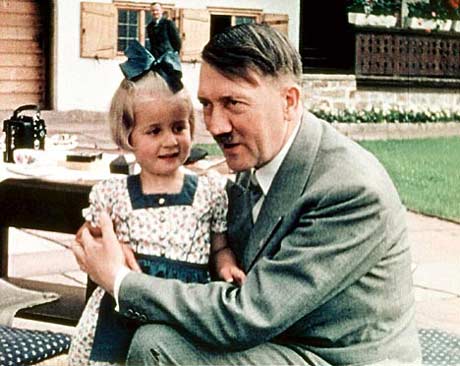A couple months ago, I posted some exchanges from a Reddit Ask Me Anything conducted by a nonagenarian from Stuttgart who came of age during the rise of Naziism and even briefly met Adolf Hitler. What struck me about her attitude is that she didn’t seem to embrace her own culpability as a worker for the Nazi cause, something I’ve noticed over the years with other German citizens who grew up on the wrong side of World War II. It’s like they never fully processed the horrors that occurred–they were completely brainwashed but only partially deprogrammed–and some even seem to still harbor a degree of admiration for Hitler. It’s just stunning.
An Associated Press piece by Frank Jordans reports on a new study that gives credence to the worst fears about Germans of that generation, revealing that those indoctrinated into Nazism during their wonder years retained feelings of anti-Semitism. The effect was most pronounced in areas where anti-Semitism had been exhibited before the Nazis solidified power.
The opening:
BERLIN (AP) — Anti-Semitic propaganda had a life-long effect on German children schooled during the Nazi period, leaving them far more likely to harbor negative views of Jews than those born earlier and later, according to a study published Monday.
The findings indicate that attempts to influence public attitudes are most effective when they target young people, particularly if the message confirms existing beliefs, the authors said.
Researchers from the United States and Switzerland examined surveys conducted in 1996 and 2006 that asked respondents about a range of issues, including their opinions of Jews. The polls, known as the German General Social Survey, reflected the views of 5,300 people from 264 towns and cities across Germany, allowing the researchers to examine differences according to age, gender and location.
By focusing on those respondents who expressed consistently negative views of Jews in a number of questions, the researchers found that those born in the 1930s held the most extreme anti-Semitic opinions – even fifty years after the end of Nazi rule.
“It’s not just that Nazi schooling worked, that if you subject people to a totalitarian regime during their formative years it will influence the way their mind works,” said Hans-Joachim Voth of the University of Zurich, one of the study’s authors. “The striking thing is that it doesn’t go away afterward.”•

